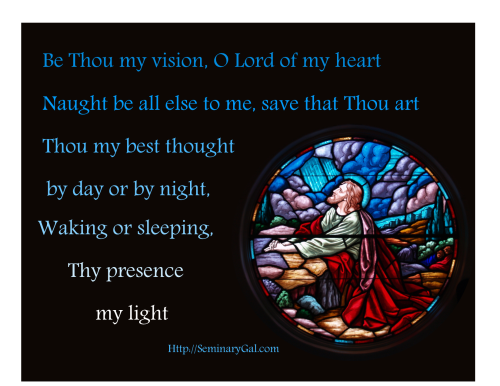Our Friday hymn to close out the week of Kingdom Actions for the Overcomer is All the Way My Savior Leads Me written by Fanny Crosby.
When I first began at seminary, I wasn’t particularly welcomed by many of the young men who had been raised to believe women don’t do this sort of thing. One such young man comes to mind when I think about Fanny Crosby. He gave me a book on her life as a peace offering when he realized I wasn’t attending seminary for the express purpose of taking men’s jobs in order to lead—by my heretical feminism–all of Evangelical Christendom on the fastest pathway to hell. (This tells you something about how I was viewed.)
In the inscription just inside the front cover of this gesture of friendship, he wrote:
May you find hope and peace in the life of one of the Great Cloud of Witnesses. Perhaps there will be a day God will Repay you for these ‘years of the locust’ (Joel 2:25-26). Perhaps you will look Back Someday and say, ‘I have forgotten the years of the locust’ and ‘for I know whatever befall me, Jesus doeth all things well’ (page 154) But no matter—Relief or Not, our longing for heaven will only grow for: ‘Perfect Rest for me is Promised in my Father’s house above. (page 154).
Want to know something funny? I sought out this book to write today’s installment on this hymn and Crosby. But, I had no recollection of the inscription and no hint until just now that on page 154 (quoted in the inscription) were highlighted lyrics to All the Way My Savior Leads Me. (God is winking today.)
Fanny Crosby, too, was an Overcomer. Born the only daughter of John and Mercy Crosby, Fanny developed a severe eye inflammation at age 6 weeks and whether due to the mustard poultice treatment or a congenital condition being revealed, Fanny was permanently blind. In Bonnie C. Harvey’s book Fanny Crosby, she writes,
The first thing people focused on when they met Fanny was her blindness. But she regarded her affliction as a gift from God, saying, “It was the best thing that could have happened to me” and “How in the world could I have lived such a helpful life as I have lived had I not been blind?” She believed that without her blindness she would never have received an education. Further if she had not gone to the Institution for the Blind in New York, she would not have had the contacts to allow her to write hymns for a nationally known publishing firm.
Fanny also thought that sight must be a distraction. She had been able to develop her memory and powers of concentration because of her blindness. She sensed, too, that her lack of sight enhanced her appeal as a speaker, creating a bond of sympathy between her and her audiences that made them receptive to the Gospel message.
Crosby harbored no bitterness toward the doctor, saying, “I would tell him that he unwittingly did me the greatest favor in the world.” She delighted in the knowledge that the first face her eyes would ever see would be that of her Savior Jesus Christ.
Crosby’s blindness resulted in the kind of Kingdom Actions that turn from victimhood and fatalism and to acknowledge suffering’s ability to press us forward into the will of God and be true Overcomers. Blindness allowed her to conduct rescue missions work, advocate for blind studies in front of Congress, teach classes, preach sermons, leave money in her will establishing a home for aged senior males, and to produce her profound legacy of writing over 8,000 hymns including Blessed Assurance, To God Be the Glory, Pass Me Not, O Gentle Savior and of course today’s hymn All the Way My Savior Leads Me. You can listen here on the cyberhymnal or enjoy Rich Mullins (another Kingdom Actions Overcomer) perform this hymn in concert.
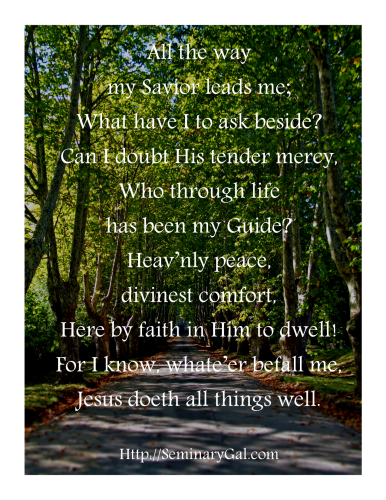 All the way my Savior leads me;
All the way my Savior leads me;
What have I to ask beside?
Can I doubt His tender mercy,
Who through life has been my Guide?
Heav’nly peace, divinest comfort,
Here by faith in Him to dwell!
For I know, whate’er befall me,
Jesus doeth all things well;
For I know, whate’er befall me,
Jesus doeth all things well.
All the way my Savior leads me,
Cheers each winding path I tread;
Gives me grace for every trial,
Feeds me with the living Bread.
Though my weary steps may falter,
And my soul athirst may be,
Gushing from the Rock before me,
Lo! A spring of joy I see;
Gushing from the Rock before me,
Lo! A spring of joy I see.
All the way my Savior leads me
O the fullness of His love!
Perfect rest to me is promised
In my Father’s house above.
When my spirit, clothed immortal,
Wings its flight to realms of day
This my song through endless ages—
Jesus led me all the way;
This my song through endless ages—
Jesus led me all the way.
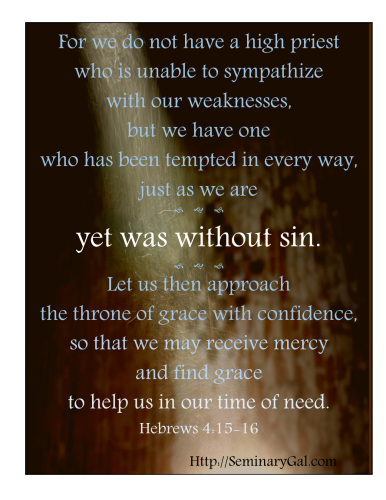 We cannot live sinless lives as did our Savior Jesus Christ, but we can rely upon His being without sin as our confidence of His being the only suitable Messiah. We can try to live pursuing Kingdom Actions even when accused or facing suffering and know that there is grace He can offer precisely because He did not fail whereas we do.
We cannot live sinless lives as did our Savior Jesus Christ, but we can rely upon His being without sin as our confidence of His being the only suitable Messiah. We can try to live pursuing Kingdom Actions even when accused or facing suffering and know that there is grace He can offer precisely because He did not fail whereas we do.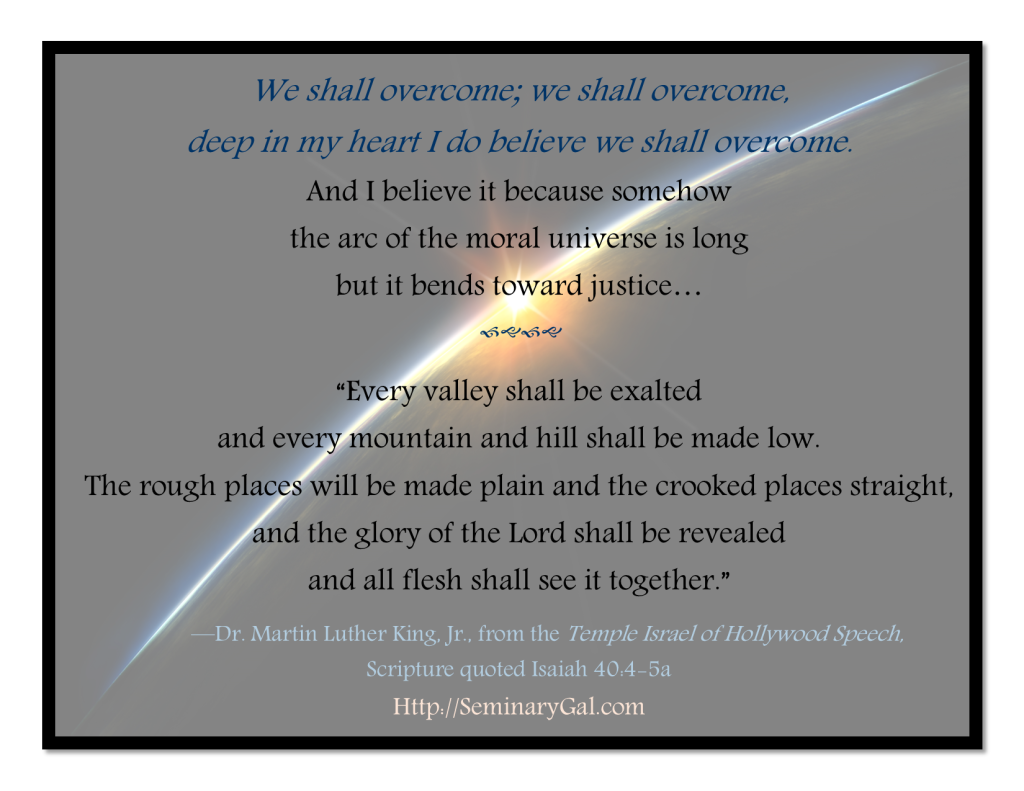
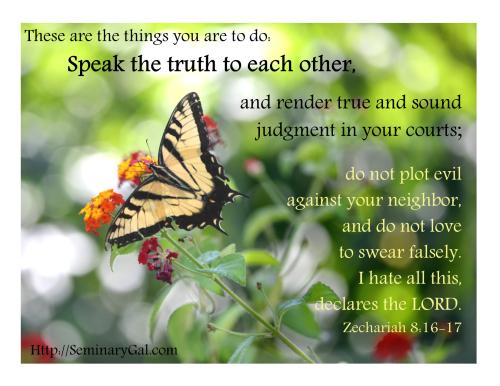
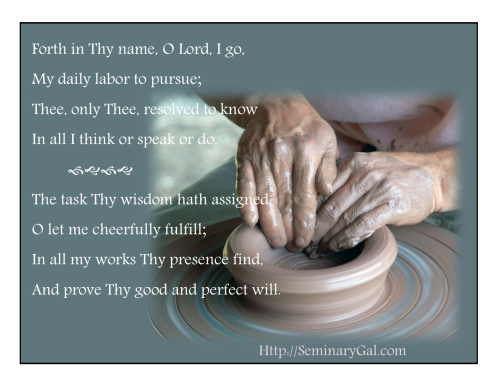

 Did you ever get one of those coded messages in cereal boxes or a coded game as a kid? You’d have to use that special red colored film decoder to see the message hidden on the card? While all the other symbols and markings occluded (there’s a word I haven’t used in forever!) the message, it was revealed by the right filter.
Did you ever get one of those coded messages in cereal boxes or a coded game as a kid? You’d have to use that special red colored film decoder to see the message hidden on the card? While all the other symbols and markings occluded (there’s a word I haven’t used in forever!) the message, it was revealed by the right filter.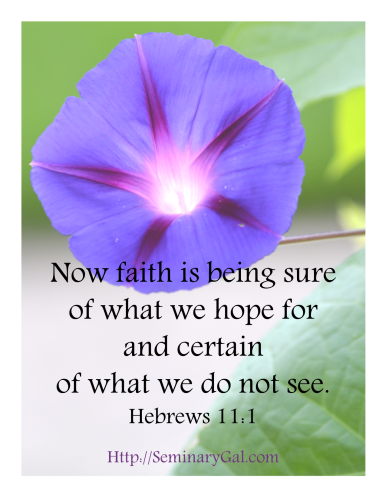 When Jesus used the Visionary Filter, it was because He’d come from the Father. Jesus knew the spiritual realm as being every bit as real as the physical world.
When Jesus used the Visionary Filter, it was because He’d come from the Father. Jesus knew the spiritual realm as being every bit as real as the physical world.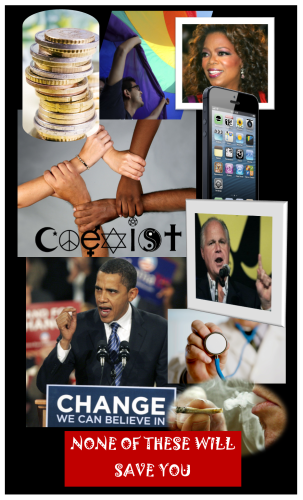 Money—if you have enough, you’ll never have to worry ever again. You can provide for yourself!
Money—if you have enough, you’ll never have to worry ever again. You can provide for yourself! I like analogies.
I like analogies. 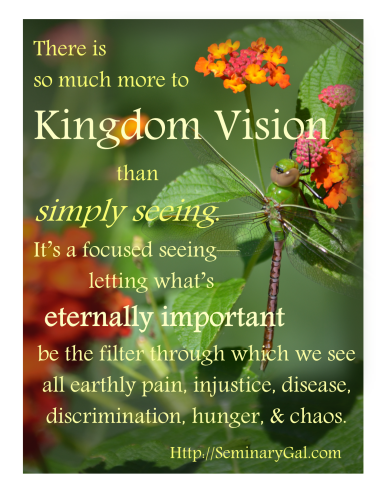 Whew! Doesn’t that seem a bit unfair? Not when we think about it this way: For those who choose to see with Kingdom vision and not just our eyes, Jesus (who is far better than Waldo) is in plain sight. Once you see Jesus, you really do see Him. You know it’s Him. Not just what He maybe looks like among a million manmade messiahs and pretenders in a world of suffering, but you see Jesus. You know Him.
Whew! Doesn’t that seem a bit unfair? Not when we think about it this way: For those who choose to see with Kingdom vision and not just our eyes, Jesus (who is far better than Waldo) is in plain sight. Once you see Jesus, you really do see Him. You know it’s Him. Not just what He maybe looks like among a million manmade messiahs and pretenders in a world of suffering, but you see Jesus. You know Him.